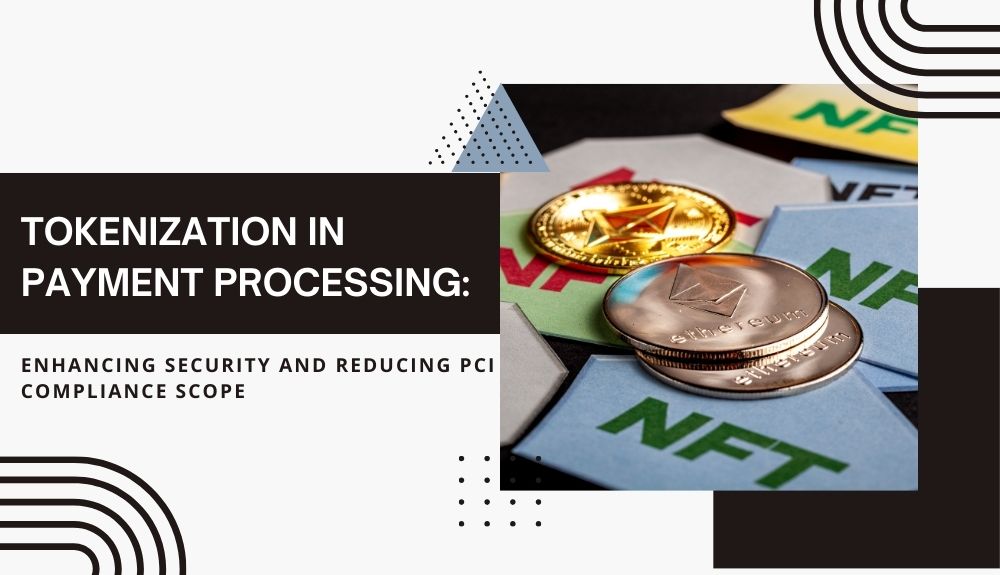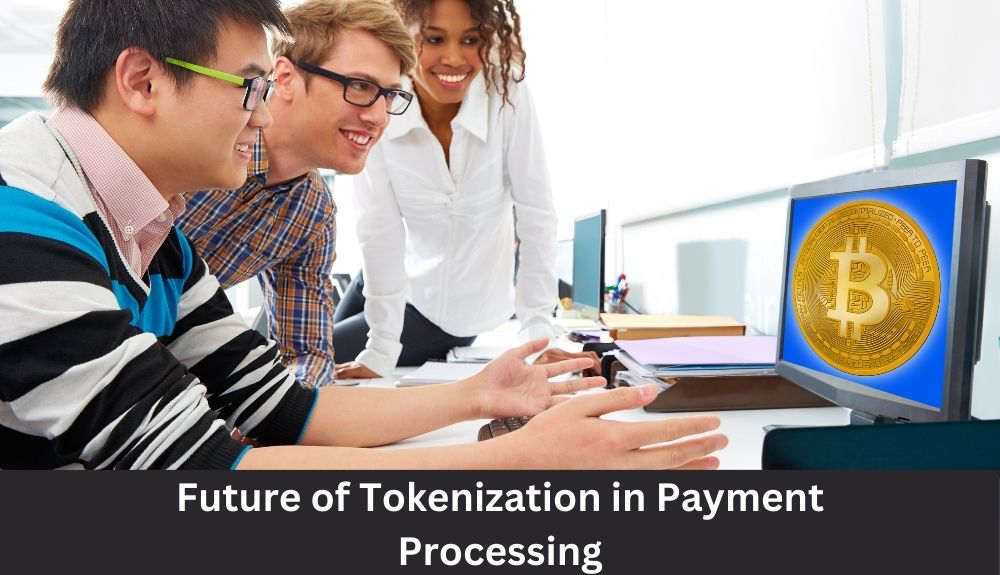
By max February 21, 2024
Introduction to Tokenization
Welcome to the future of secure payment processing! In a world where cyber threats are constantly evolving, businesses need innovative solutions to protect sensitive data. One such solution that is revolutionizing the way we handle payments is tokenization. Imagine a shield that renders your customer’s payment information indecipherable to hackers – that’s the power of tokenization. Join us as we delve into how this cutting-edge technology enhances security and streamlines compliance for merchants and consumers alike.
How Tokenization Works in Payment Processing
Tokenization in payment processing works by replacing sensitive card data with a unique token. When a customer makes a purchase, the actual card details are securely stored by the payment gateway and only the token is transmitted for processing. This means that even if hackers intercept the token, they cannot reverse-engineer it to obtain the original card information.
The process involves creating a random sequence of characters that represent the card data without compromising its security. The token is then used for transactions instead of exposing real credit or debit card numbers. This adds an extra layer of protection against fraud and unauthorized access.
By utilizing tokenization, merchants can minimize their risk exposure to data breaches and enhance customer trust in their payment systems. Customers benefit from increased security as well since their sensitive information remains safeguarded throughout the transaction process.
Tokenization streamlines payment processing while bolstering security measures for both businesses and consumers alike.
Benefits of Tokenization for Merchants and Consumers
Tokenization offers numerous benefits for both merchants and consumers in the realm of payment processing. For merchants, it provides enhanced security by replacing sensitive card data with unique tokens, reducing the risk of a data breach. This minimizes liability and builds trust with customers who value their privacy.
Moreover, tokenization streamlines checkout processes by storing encrypted tokens instead of actual card information. This not only enhances user experience but also increases transaction efficiency, leading to higher conversion rates for businesses. Additionally, it helps in preventing fraudulent activities as hackers cannot access valuable payment details stored within the system.
For consumers, tokenization ensures peace of mind when making online purchases as their financial information remains safeguarded throughout the transaction process. With reduced exposure to potential cyber threats, customers can shop with confidence knowing that their sensitive data is shielded from unauthorized access or misuse.
Comparison with Other Security Measures

When it comes to securing payment data, businesses have various options at their disposal. Tokenization stands out among other security measures due to its unique approach. Unlike encryption, which scrambles data that can be decrypted using a key, tokenization replaces sensitive information with random tokens that hold no intrinsic value.
Tokenization offers a layer of protection that surpasses traditional methods like SSL certificates or EMV chips. While those methods are effective in certain aspects, they do not eliminate the risk of exposing actual cardholder data during transactions.
Furthermore, compared to manual processes for storing and transmitting card details securely, tokenization automates the process and significantly reduces human error. This makes it a more reliable and efficient solution for safeguarding sensitive payment information.
In essence, by leveraging tokenization in payment processing, businesses can enhance security levels beyond what conventional security measures offer without compromising on convenience or efficiency.
Implementation of Tokenization in Businesses
Implementing tokenization in businesses involves integrating a secure system that replaces sensitive payment data with unique tokens. This process ensures that customer information is protected during transactions, reducing the risk of data breaches and fraud. Businesses can seamlessly incorporate tokenization into their existing payment processes through APIs or third-party service providers.
By implementing tokenization, businesses can enhance customer trust and loyalty by safeguarding their personal and financial information. Additionally, this technology simplifies compliance with data protection regulations such as the GDPR and CCPA. The ease of implementation and the potential cost savings make tokenization an attractive option for businesses looking to strengthen their security measures.
Adopting tokenization in business operations is a proactive step towards securing sensitive payment data and mitigating risks associated with cyber threats. As technology continues to evolve, businesses must stay ahead by prioritizing robust security measures like tokenization to protect both themselves and their customers from potential vulnerabilities.
Impact on PCI Compliance Requirements
Tokenization in payment processing has a significant impact on PCI compliance requirements for businesses. By replacing sensitive card data with unique tokens, the scope of PCI DSS compliance is reduced as the actual card information is no longer stored within the organization’s systems. This minimizes the risk of data breaches and helps companies comply with stringent security standards.
With tokenization, merchants can streamline their compliance efforts by focusing on securing tokenized data rather than trying to safeguard entire sets of credit card details. This simplification not only saves time and resources but also enhances overall security posture. As a result, companies can demonstrate adherence to PCI standards more effectively during audits.
Furthermore, implementing tokenization demonstrates a proactive approach to protecting customer information and maintaining trust in transactions. By leveraging this advanced technology, businesses can stay ahead of evolving cyber threats and regulatory requirements while ensuring a seamless payment experience for consumers.
Future of Tokenization in Payment Processing

As technology continues to evolve, the future of tokenization in payment processing looks promising. With the rise of e-commerce and digital payments, the need for secure transactions has never been more crucial.
Developments in artificial intelligence and machine learning are expected to further enhance tokenization techniques, making them even more robust against cyber threats. We can anticipate more advanced encryption methods and customization options to meet specific business needs.
Moreover, as consumers demand convenient yet secure payment solutions, tokenization is likely to become a standard practice across industries. Its ability to safeguard sensitive data while streamlining transactions makes it a valuable asset for businesses looking to build trust with their customers.
Innovations such as biometric authentication and blockchain integration could also play a significant role in shaping the future of tokenization. These advancements aim to provide an extra layer of security and transparency in payment processes.
The ongoing development of tokenization technology will undoubtedly continue to revolutionize how we approach payment security in the years ahead.
Conclusion
Tokenization in payment processing is a game-changer when it comes to enhancing security and reducing PCI compliance scope. By replacing sensitive card data with unique tokens, businesses can significantly reduce the risk of data breaches and fraud. Not only does tokenization benefit merchants by safeguarding customer information, but it also provides consumers with peace of mind knowing that their data is secure.
As technology continues to advance, we can expect tokenization to become even more prevalent in payment processing. Its effectiveness in protecting sensitive information makes it a valuable tool for businesses looking to stay ahead of cyber threats. Embracing tokenization not only improves security but also simplifies PCI compliance requirements, ultimately saving time and resources for organizations.
Adopting tokenization in payment processing is no longer just an option—it’s a necessity in today’s digital landscape. Businesses that prioritize security and customer trust will undoubtedly leverage this technology to strengthen their defenses against cybercrime while providing a seamless payment experience for their customers.
